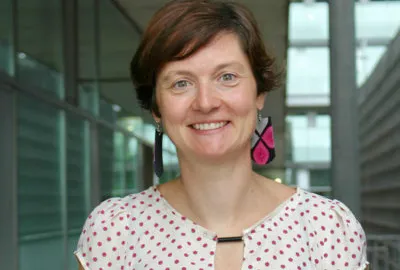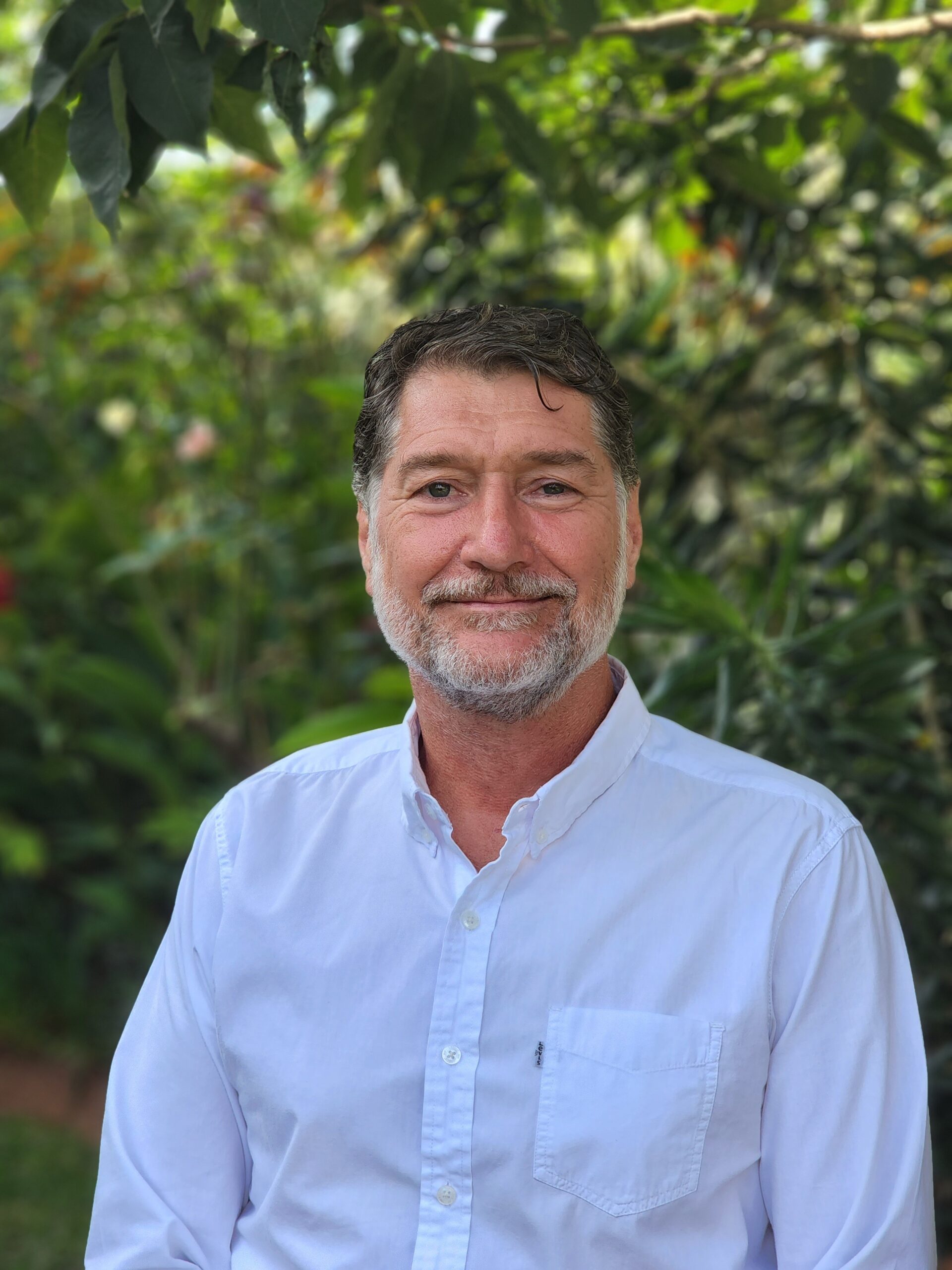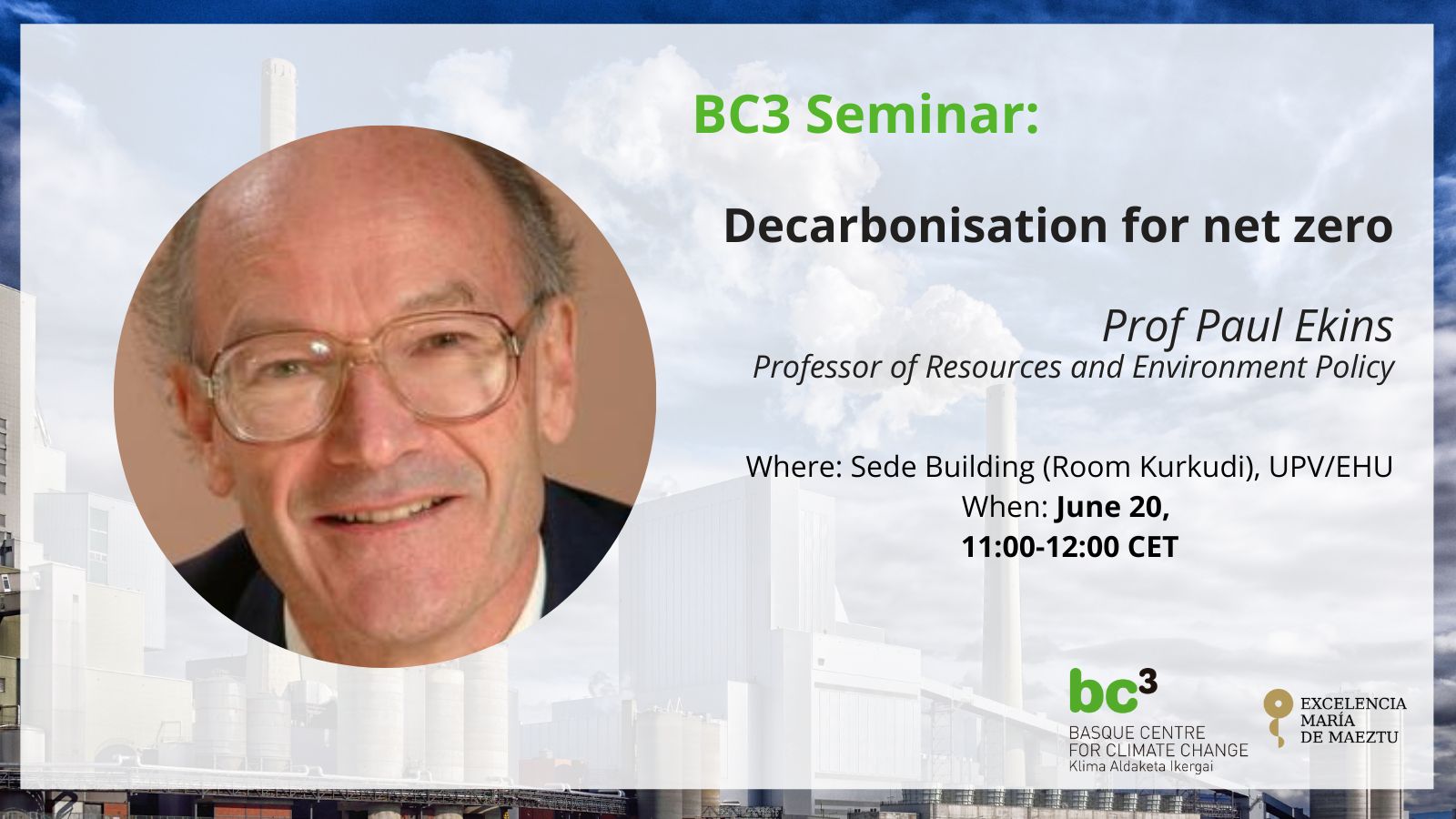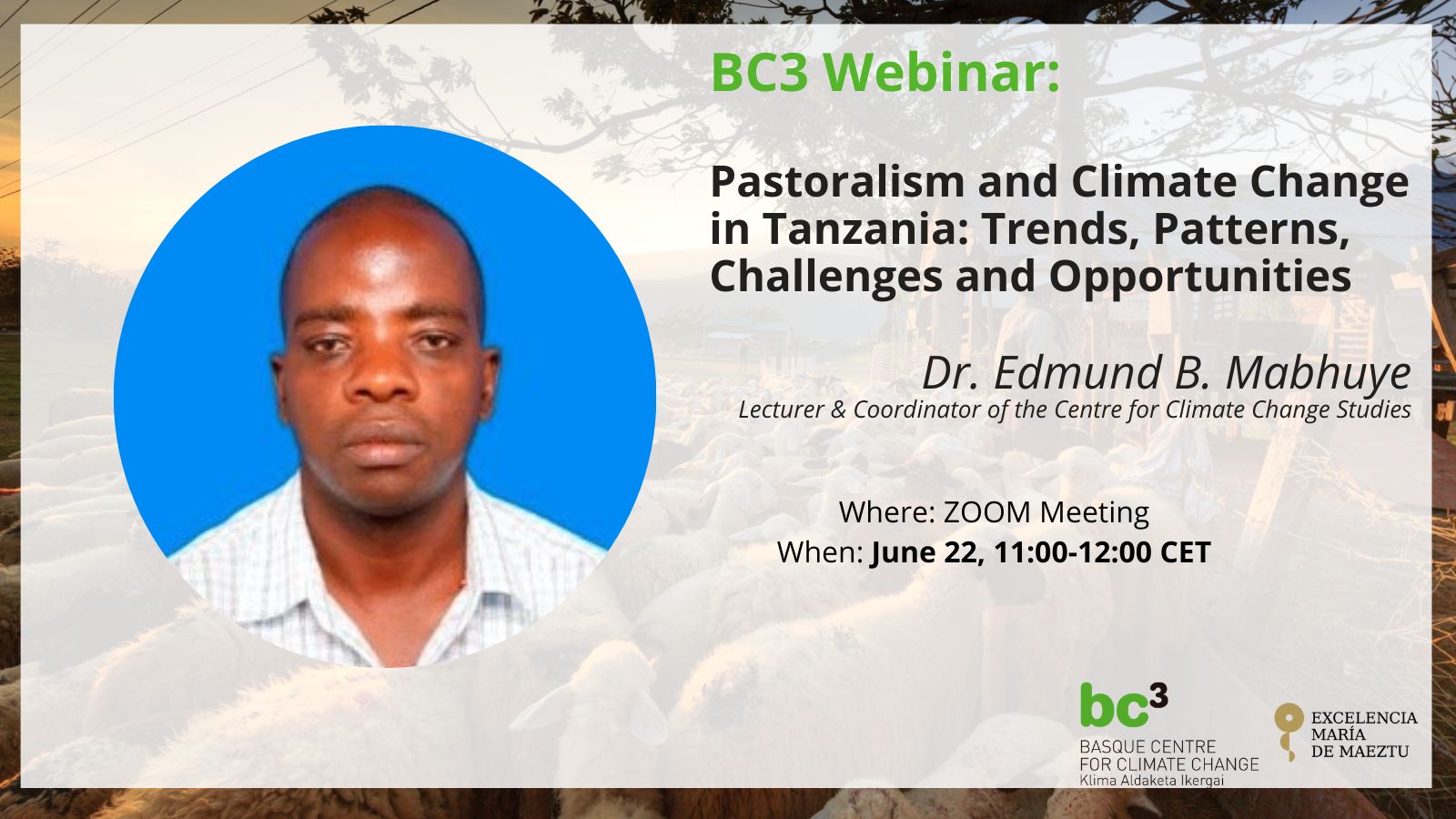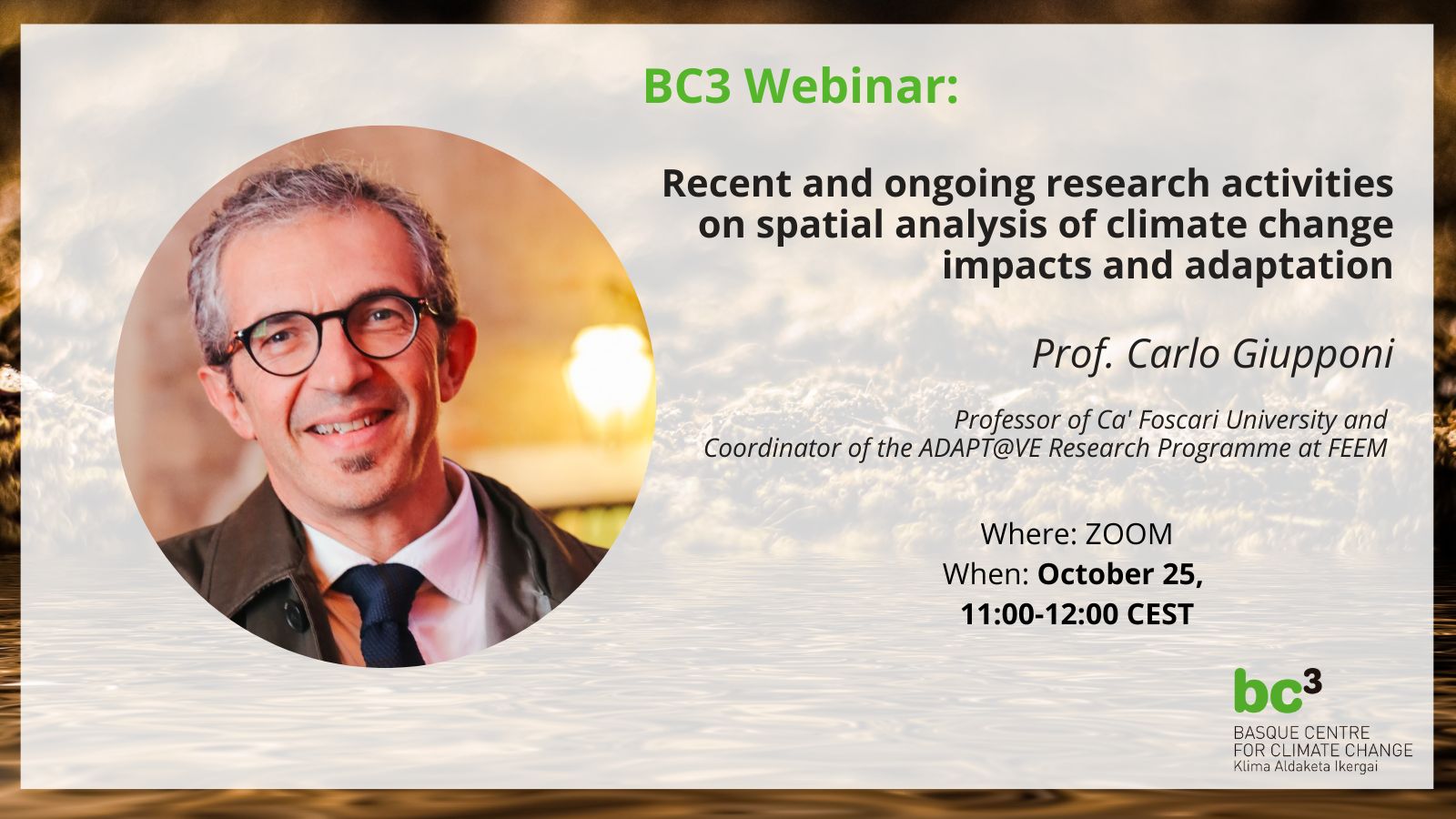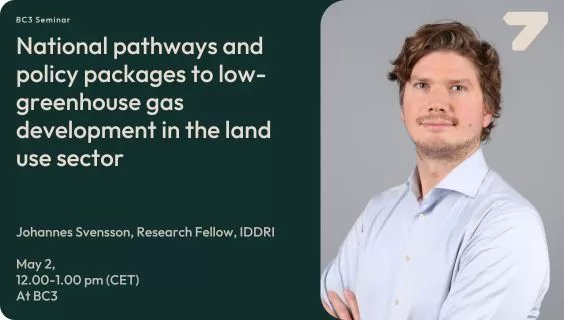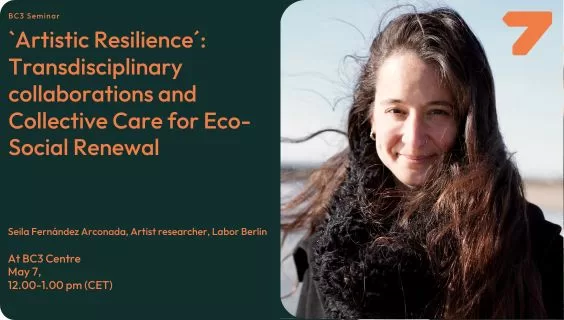Seminars
BC3 Seminar – The Urban Green Divide or Segregating by Greening
BC3-Basque Centre for Climate Change Sede Building 1, 1st floor, Scientific Park of the University of the Basque Country, Leioa, Bizkaia, SpainIn the past two decades, cities in the Global North and South have invested in urban greening projects such as parks, gardens, greenways, or green climate resilient infrastructure to address a variety of environmental, health, economic, and social challenges. Such interventions are often accompanied by large scale real estate projects.
The Hortonmachine – A quick look into the hydro- geomorphologic engine of k.LAB
BC3-Basque Centre for Climate Change Sede Building 1, 1st floor, Scientific Park of the University of the Basque Country, Leioa, Bizkaia, SpainThe workshop will introduce the Hortomachine from a hydro- geomorphologic point of view.
After an overview of the contained tools a quick example of modelling through scripting will be shown.
AdaptaBrasil: Innovative Platform for Monitoring Climate Change
BC3-Basque Centre for Climate Change Sede Building 1, 1st floor, Scientific Park of the University of the Basque Country, Leioa, Bizkaia, SpainSustainable development and climate mitigation and adaptation in a country the size of Brazil presents enormous challenges regarding the environmental, social, and productivity sectors. Climate risk is based on the characterization of the social and natural systems linked to vulnerability and exposure to a given hazard.
Decarbonisation for net zero
BC3-Basque Centre for Climate Change Sede Building 1, 1st floor, Scientific Park of the University of the Basque Country, Leioa, Bizkaia, SpainThe world is committed to the temperature target in the Paris Agreement to keep global warming well below 2oC, aiming for 1.5oC. This will require rapid reductions of emissions of GHGs, leading to net-zero emissions by mid-century. The seminar will explore the economics of such a transition to low- or zero-carbon energy sources, in respect of the investments that will be required and the resulting macroeconomic impacts.
Pastoralism and Climate Change in Tanzania: Trends, Patterns, Challenges and Opportunities
BC3-Basque Centre for Climate Change Sede Building 1, 1st floor, Scientific Park of the University of the Basque Country, Leioa, Bizkaia, SpainPastoralism is one of the historical and naturally adapting livelihoods systems in drylands systems. Overtime, pastoralism adaptations to environmental and climatic dynamics are strategically embedded in the indigenous social structures and resource management value systems.
Urban climate governance: Better planning for successful adaptation
BC3-Basque Centre for Climate Change Sede Building 1, 1st floor, Scientific Park of the University of the Basque Country, Leioa, Bizkaia, SpainThe need for adaptation is unanimously recognized as urgent and becoming universal (IPCC, AR6, WGII). And, while the IPCC AR6 WGII highlights that adaptation has been increasing across all regions since AR5 (very high confidence) (IPCC, AR6, WGII, SPM: 23), it underlines at the same time that there is increasing evidence of maladaptation (high confidence) (IPCC, AR6, WGII, SPM: 30).
Innovative modelling approaches for predicting socio-environmental evolution in highly anthropized coastal lagoons (SMARTLAGOON)
BC3-Basque Centre for Climate Change Sede Building 1, 1st floor, Scientific Park of the University of the Basque Country, Leioa, Bizkaia, SpainThis seminar presents several tasks that are currently being developed within the framework of the H2020 SMARTLAGOON Project. The main aim of this project is the development of a digital twin of the Mar Menor that can adequately represent the natural processes that occur both in the Mar Menor and in its drainage watershed.
Recent and ongoing research activities on spatial analysis of climate change impacts and adaptation
BC3-Basque Centre for Climate Change Sede Building 1, 1st floor, Scientific Park of the University of the Basque Country, Leioa, Bizkaia, SpainI will provide a few examples of research activities sharing the same aim of extracting knowledge from climate modelling to inform and orient human activities, such as planning and investments. The examples have in common a spatially explicit approach and they adopt vaious sorts of data processing and modelling: from simple formulas of map algebra, to multi-criteria analysis, or agent based modelling.
A diet for Austria within planetary boundaries
BC3-Basque Centre for Climate Change Sede Building 1, 1st floor, Scientific Park of the University of the Basque Country, Leioa, Bizkaia, SpainAgricultural production is one of the largest contributors to global greenhouse gas emissions as well as the main driver of biodiversity loss, eutrophication, and land-use change. In order to avoid consequences that fundamentally threaten human life on earth, a major transformation is required.
Empirical evidence on the importance of considering equity in incentive based policy instruments for ecosystem services provision
BC3-Basque Centre for Climate Change Sede Building 1, 1st floor, Scientific Park of the University of the Basque Country, Leioa, Bizkaia, SpainIncentive-based policy instruments, such as Reducing Emissions from Deforestation and Degradation (REDD+) and Payments for Ecosystem Services (PES), are at the forefront of global efforts to meet conservation and land use based emissions reduction goals. REDD+ and PES are primarily perceived as instruments aimed at addressing environmental degradation. I

